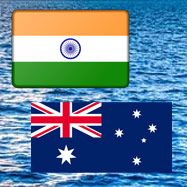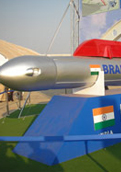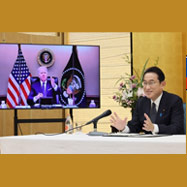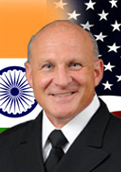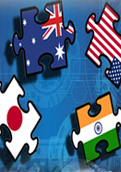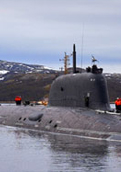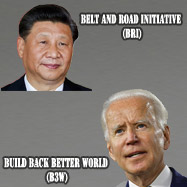Quad Foreign Ministers’ Meeting: Decoding the Joint Statement
The recent Joint Statement issued after the Quad Foreign Ministers’ meeting in Melbourne indicates the grouping’s drive towards institutionalisation and coming close to achieving a concrete mandate for its existence.
- Abhay Kumar Singh , R. Vignesh
- March 04, 2022



